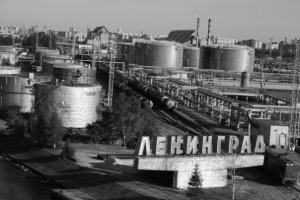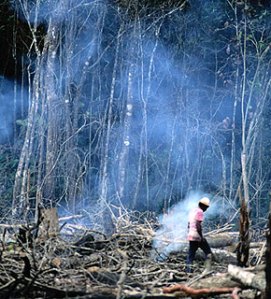
Termipeitto: The End is Nigh
Christmas is a time for family, tradition, good food and coming together to remember what is important in life. Right? Wrong! Christmas has been hijacked by the Dark Side and now is ‘the retail event of the year’ or, put another way, the peak of the annual consumption calendar, or, put another way, exactly what is killing the biosphere.
We used to bring plants and greenery into the house as part of a pagan nature worship ceremony. Now we chop the tree down, stack imported plastic tat under it and when we are done throw the lot into the bin. Well it seems sometimes you get what you pay for because our perversion of christmas, like our perversion of life in general is a one way ticket to oblivion. We are hungry ghosts and our desperate attempts to be fulfilled by consumption is a drawn out mass suicide.
“Gather round children, Daddy has re-morgaged the house and bought a bundle of goodies… stuff your ears with tissues so you don’t hear the wails as we gouge out nature’s eyes. Watch these cartoons so you don’t see us dig up nature’s sacred heart and impale it on the shopping mall’s spire. Stop crying children! This is what we wanted! Wasn’t it!?”
This festive season the suicide economy works like this: disposable products are manufactured in the East; shipped to the West, sold, and then disposed of. Then the vast ships return empty to do it all again, all the while burning millions of tonnes of precious oil .
The relationship between China and the United States says it all. Last year the USA spent $455 billion over christmas. The biggest retailer in the USA is Wal-Mart. Wal-Mart buys 91% of their consumer goods in China (no surprise the US trade deficit is currently $440 trillion). In order to get these across the Pacific Wal-Mart have had built some of the largest vessels this planet has ever seen.

Emma-Maersk: the world's biggest container vessel
These vast, incredibly fast ships (31 knots ) were commissioned by Wal-Mart for the sole purpose of getting all their goods from China . They hold 15,000 containers. Longer than a US Aircraft Carrier (which has a crew of 5,000) the full crew of these emblems of our era is just 13 people on a ship. These behemoths are emblematic of the consumer culture we have created which is feeding off the living fabric of our planet. They are totally juxtaposed to a sustainable economy.

Christmas presents on route
Globalization has shrunk the mighty Pacific down to an earthly river Styx. Charon, the ferryman of Hades, now uses Maersk to transport death and the money isn’t a coin in the eye but digital transactions wired at the speed of light between banks that would collapse were it not for the billions we pay in tax; handed them by governments because they are ‘too big to fail’ (Check the video below: Taming the Vampire Squid). The whole system is a self-perpetuating rip-off and it is all driven by good-old, trustworthy, consumer demand… so keep watching those adverts… and buy, BUY, BUY!!
This is one of three ships presently in service, with another two ships commissioned to be completed in 2012. Aside from destroying local, sustainable economies the major catch here is that the annual carbon emissions of Maersk is 40-50 million tonnes of CO2, which, by coincidence, is the same as its country of origin, Denmark!
Greenhouse gas emissions from international shipping currently account for around 3% of total global emissions and are predicted to grow fast in the future. Indeed, all the world’s governments are working hard to boost this trade because this is how they measure their success… economic growth. You have to feel sorry for the hapless ‘negotiators’ trying to square that circle in Cancun… or perhaps they know the whole thing is a joke. Governments have just found another arena in which to compete for resources.
So, this christmas, think of Jesus and keep shopping like crazed little robots and when the Apocalypse comes early don’t be surprised… we sponsored it.



 As consumer, investor and legislatory pressure build the return on investment of reducing impacts increases. This is an opportunity few companies can afford to miss. For a company to position itself as green it must be able to back up claims with evidence. Just reducing emissions by 20% isn’t good enough anymore; that’s standard practice in a warming world. Consumers want to have confidence that brands have a bullet proof sustainable and ethical approach.
As consumer, investor and legislatory pressure build the return on investment of reducing impacts increases. This is an opportunity few companies can afford to miss. For a company to position itself as green it must be able to back up claims with evidence. Just reducing emissions by 20% isn’t good enough anymore; that’s standard practice in a warming world. Consumers want to have confidence that brands have a bullet proof sustainable and ethical approach.



